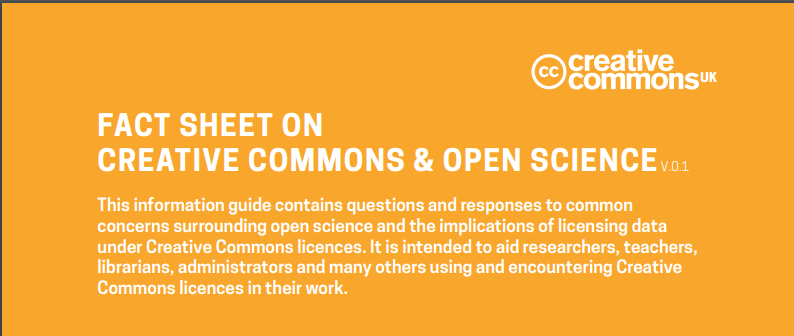Research Data Management and Publishing
Licenses
Research is creative work. An article, software, database, conference paper, university textbook, etc., are the creative work of a researcher, protected by copyright.
The Creative Commons licences allow the authors to give up some of their rights so that the work can be used by others according to the conditions specified by the author.
Seven regularly used Creative Common licenses from Wikipedia:

Data, being the objectively existing facts, are often not the subject of copyright protection, but the labour intensive databases with added value (possibilities for searching and linking) can well be. In licencing data sets, it is important, first, to find out the owner of the data and to specify who has the right to give the licence. The property rights related to copyright belong to the university as the employer of the author; at present, the authors themselves have to take care of the licencing of their data so that they met the FAIR requirements.
To make research data findable and usable to others, it has to be deposited in data repositories (see repositories). In most cases, the repository offers licences to ensure that the data can really be treated as open data without unnecessary restrictions. However, the precise licencing is still determined by the owner of the copyright.
CC licencing is a single and irreversible process.
Creative Commons (UK) has issued a fact sheet with guidelines how to licence research data for using it as open science.
Fact Sheet on Creative Commons and Open Science, Creative Commons UK, DOI: https://doi.org/10.5281/zenodo.840651, CC BY 4.0

Besides Creative Commons licences, data can be shared also under the Open Data Commons licences, software can be licenced under MIT licences, etc.
Licence Selector or the Licencing Assistant on the European Data Portal can help in choosing the appropriate licences.


